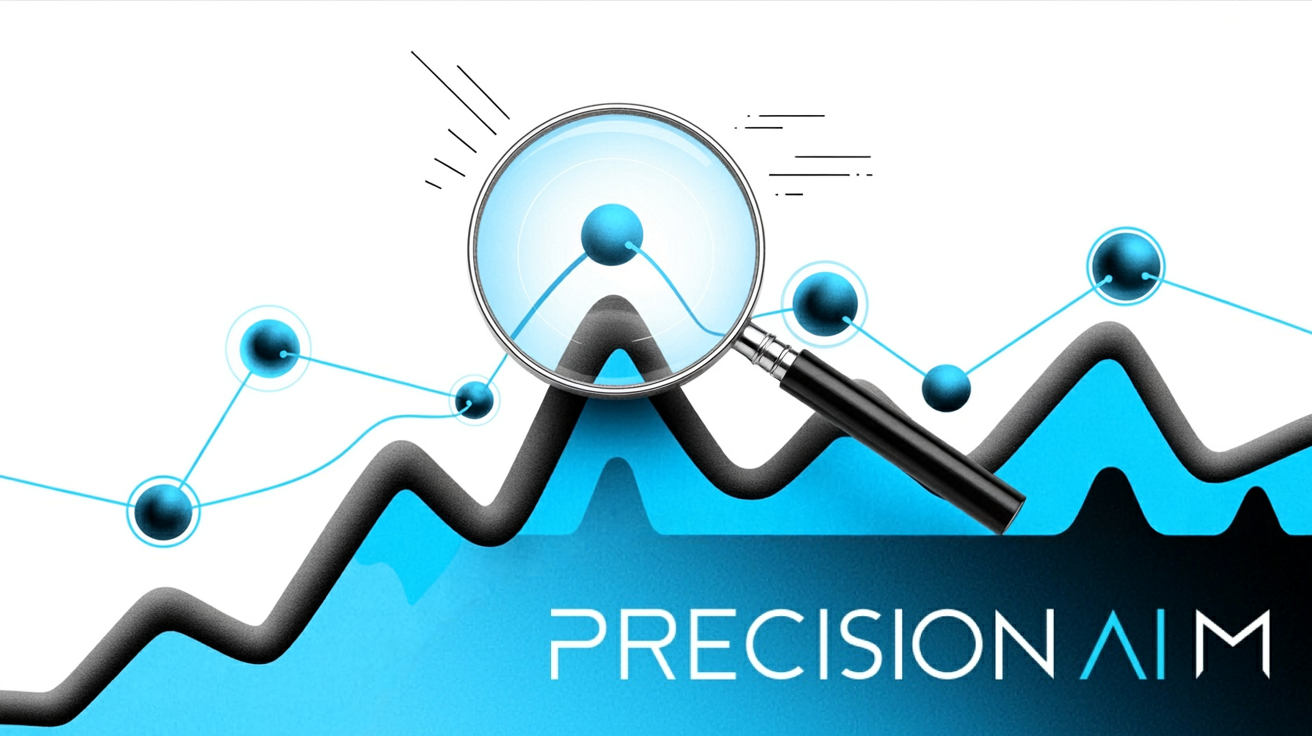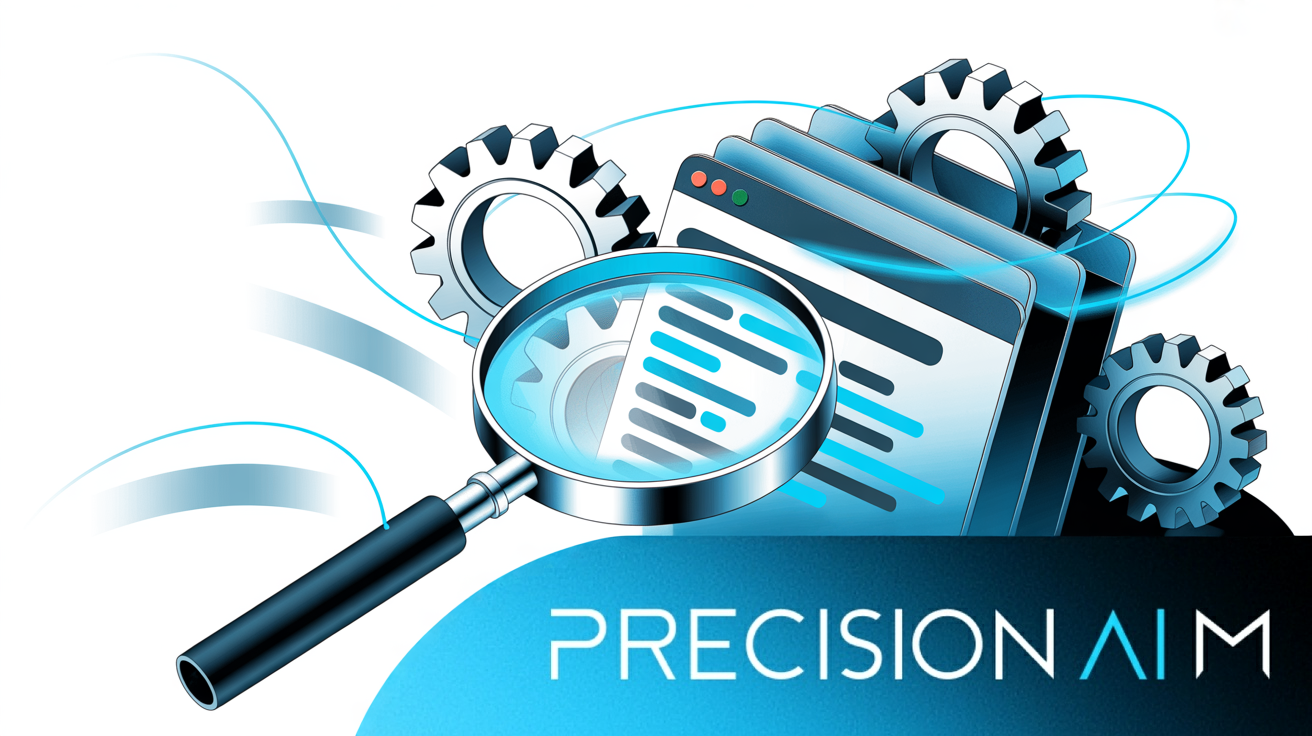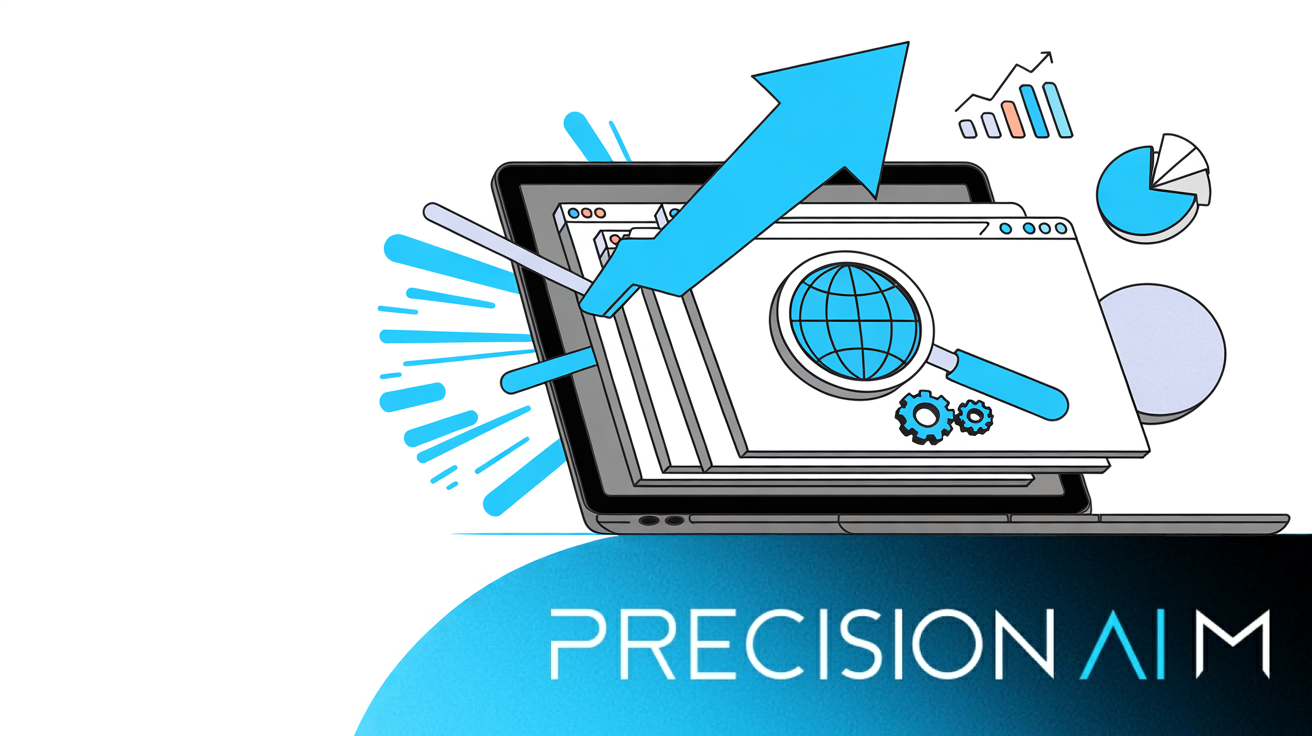Scaling an agency often means running into a wall of resource limits, hiring headaches, or inconsistent service quality. If you’re trying to expand your local SEO offering without stretching your team thin or risking your brand’s reputation, you’re not alone.
I’ve seen agencies struggle to keep up with multi-location demands, complex reporting, and the need for specialist skills—especially when every client expects seamless, branded service. That’s where white label local SEO comes in, letting you deliver expert fulfilment invisibly while keeping your agency front and center.
In this guide, I’ll break down exactly how white label local SEO works, from onboarding and deliverables to choosing the right provider and integrating new workflows. You’ll get real-world case studies, pricing models, and step-by-step frameworks to help you scale efficiently, maintain quality, and protect your brand.
Whether you’re looking to boost capacity, cut costs, or launch new verticals, you’ll find actionable strategies and common pitfalls to avoid. By the end, you’ll know how to grow your agency with confidence—without sacrificing control or client trust.
What is white label local SEO?
Defining white label local SEO for agencies
White label local SEO lets agencies offer location-specific SEO services under their own brand, while a specialist handles the nuts and bolts behind the scenes. The agency stays in charge of client relationships, strategy, and reporting, but actual fulfilment—like Google Business Profile optimisation, managing listings, and writing local content—gets completed out of sight.

White Label Local SEO Services | Outsource Your Local SEO and Reap the Rewards
It’s the business version of a ghost kitchen: clients get the agency’s flavour and presentation, but the “cooking” happens elsewhere. The agency always appears as the expert, with the white label provider hidden from view.

This model differs from regular white label SEO, which covers much broader, national or global search projects and technical work. Unlike standard outsourcing—where a third-party might interact with clients directly—white label means the partner remains invisible.
The “local” focus makes all the difference: every action is aimed at boosting search, maps, and reputation for physical locations.
The ultimate measure of success for a local business isn't national keyword rankings, but tangible outcomes like increased phone calls, appointment bookings, and in-store visits from the surrounding community—results driven by a targeted local SEO strategy.
Core mechanics: outsourcing vs. white label (agency branding, invisible provider)
How does white label compare to basic outsourcing? With white label, the agency advertises and controls the service, and their branding is everywhere the client looks. The nitty-gritty tasks—optimising Google Business Profiles, building directory listings, writing locally-relevant blogs—are delivered by the hidden provider.
Clients could use branded portals, dashboards, or reports, never glimpsing the third party. This means the agency gets the spotlight as local SEO expert and delivers a uniform client experience.
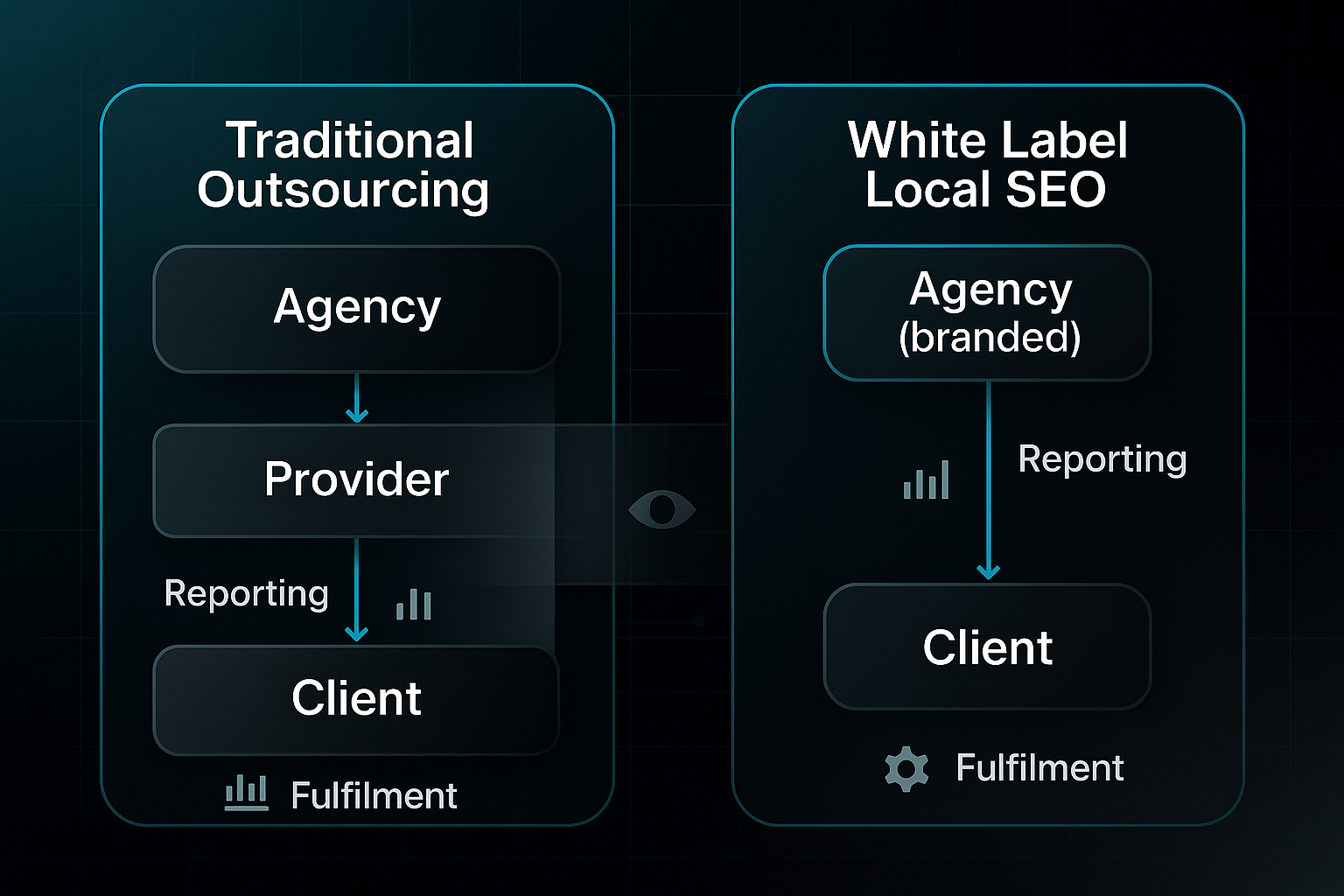
Scope and examples of local SEO activities
What falls under white label local SEO? Here are the essentials:
- Google Business Profile Optimisation
Claiming, verifying, and improving listings for better visibility in search and maps. - Local Citation Building
Keeping business details consistent and up-to-date on directories. - Map Pack Optimisation
Boosting presence in Google’s 3-pack/local search results. - Review Management
Gathering customer reviews and monitoring service feedback. - NAP Consistency Checks
Making sure Name, Address, and Phone number are identical everywhere online. - Localised Content Creation
Writing blogs or landing pages with local keywords.
Everything that reaches the client feels like it’s come directly from the agency. For example, agencies can report on dozens of locations’ Google profiles with branded, professional insights—even while fulfilment work happens in secret.

Who uses white label local SEO and why?
Who’s taking advantage of this model? Digital marketing agencies, web developers, PR firms, consultants, and ad agencies all use white label local SEO.
Why? It’s a way to expand fast without hiring, keep clients engaged, and handle complex, multi-location projects. Paying only for the work they need, agencies scale up or down and serve niche demands easily.
Picture an agency supporting a retail chain: every branch gets its Google profile expertly managed and local content refreshed—presented as the agency’s own work, even though it’s handled by a discreet partner.
Bottom line? White label local SEO lets agencies grow, stay nimble, and look like seasoned pros—all while fulfilment is quietly handled out of sight.
Agencies can instantly appear more established by offering a full suite of white label local SEO services, including AI-optimized GBP management and listings on over 70 directories.
How white label local SEO works: Service models and operational flow
Process breakdown: From client onboarding to deliverable delivery
Let’s break down how a white label local SEO campaign usually unfolds. Everything kicks off with the agency onboarding their client and gathering essentials—think Google Business Profile access, website logins, and branding guidelines.
Sensitive information is handled with care, sent to the provider using secure, encrypted forms or workflow tools. The white label partner then completes a comprehensive local SEO audit: from GBP setups and citation checks to rankings and on-site factors. The results, branded with the agency’s logo, go back for agency review.
Nothing is launched until the agency signs off. That’s when the provider gets to work—optimising profiles, keeping citations tidy, creating local content, and handling reviews. Quality control always comes before client reports leave the agency’s hands. Monthly, agencies get fully branded progress reports to share with clients.
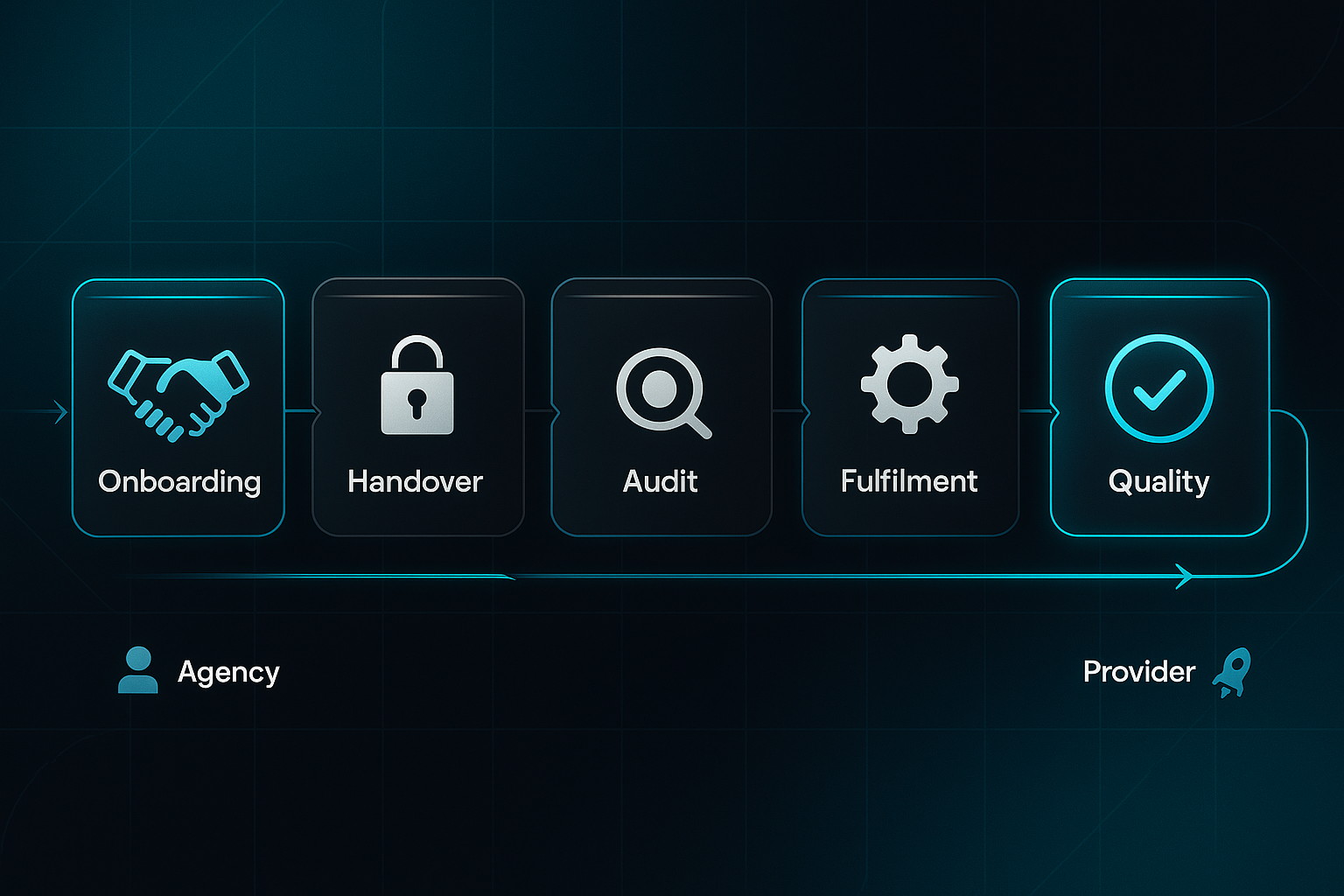
Role differentiation: agency’s ownership of relationship versus provider fulfilment
So who does what? The agency is always the face of client strategy and communication. All advice and meetings go through them, preserving that unbroken client relationship.
Behind the curtain, the provider is all about campaign research and technical execution. Clients see the branding and service, never the helping hand doing the heavy lifting. Any insights from the provider are translated by the agency into guidance that fits each client’s goals.
Types of white label local SEO providers
- Boutique Agencies
Custom, hands-on SEO for complex projects or multi-location clients. - SaaS/Automated Platforms
Efficient automation for agencies managing large volumes of routine work. - Hybrid Providers
The best of both—automation plus expert support for flexibility and scale.
Boutiques shine when projects need that bespoke attention. If you’re chasing efficiency for dozens of similar campaigns, automated SaaS is the way to go. Hybrid options offer a flexible blend of human and automated expertise. Most providers integrate with agency reporting tech, so delivery is seamless.
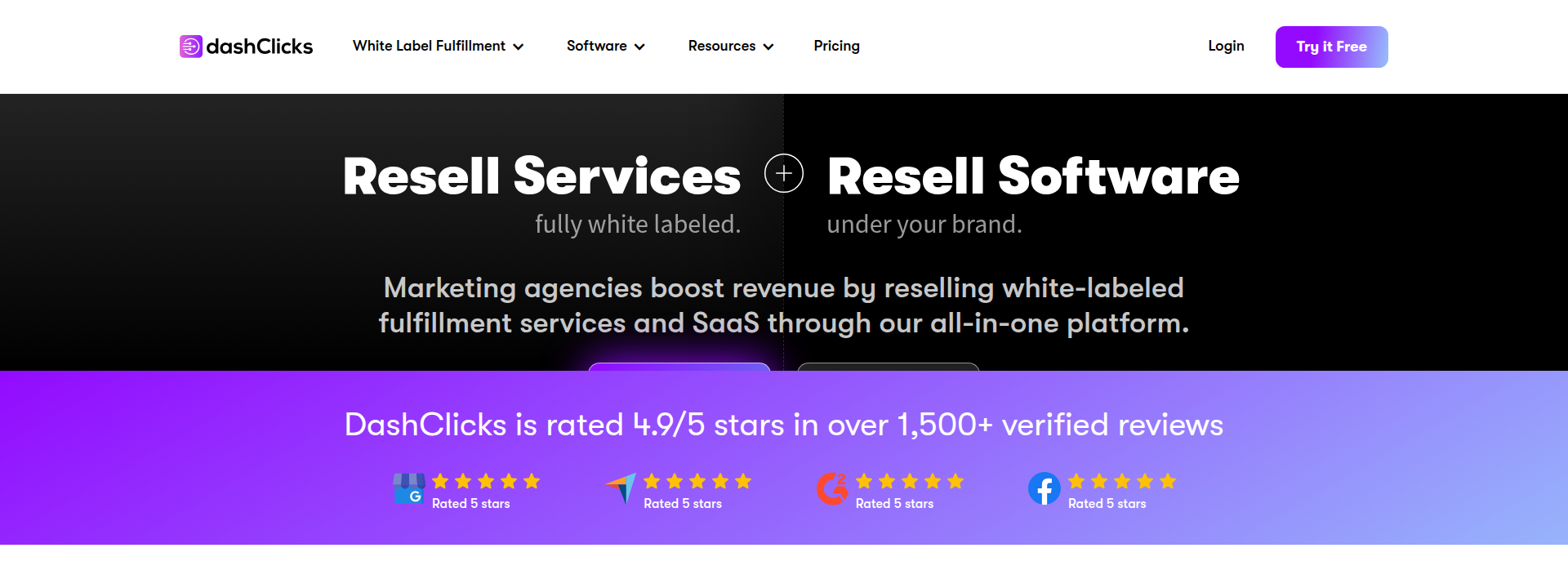
Source: dashclicks.com
Standard deliverables and reporting channels
- Google Business Profile Optimisation
Claiming, configuring, and boosting visibility in local search results. - Citation Building & NAP Checks
Making sure business details are accurate everywhere online. - Local Content Creation
Blogs or landing pages that target specific locations. - Review Management
Boosting reputation by increasing and managing feedback. - On-Page SEO Improvements
Technical website tweaks for local ranking signals. - Branded Audits & Reporting
Dashboards, PDFs, or client portals all on the agency’s schedule.
Every deliverable is branded for the agency. And the provider? Always completely in the background—invisible but essential—so clients get a seamless, pro-level experience, every time.
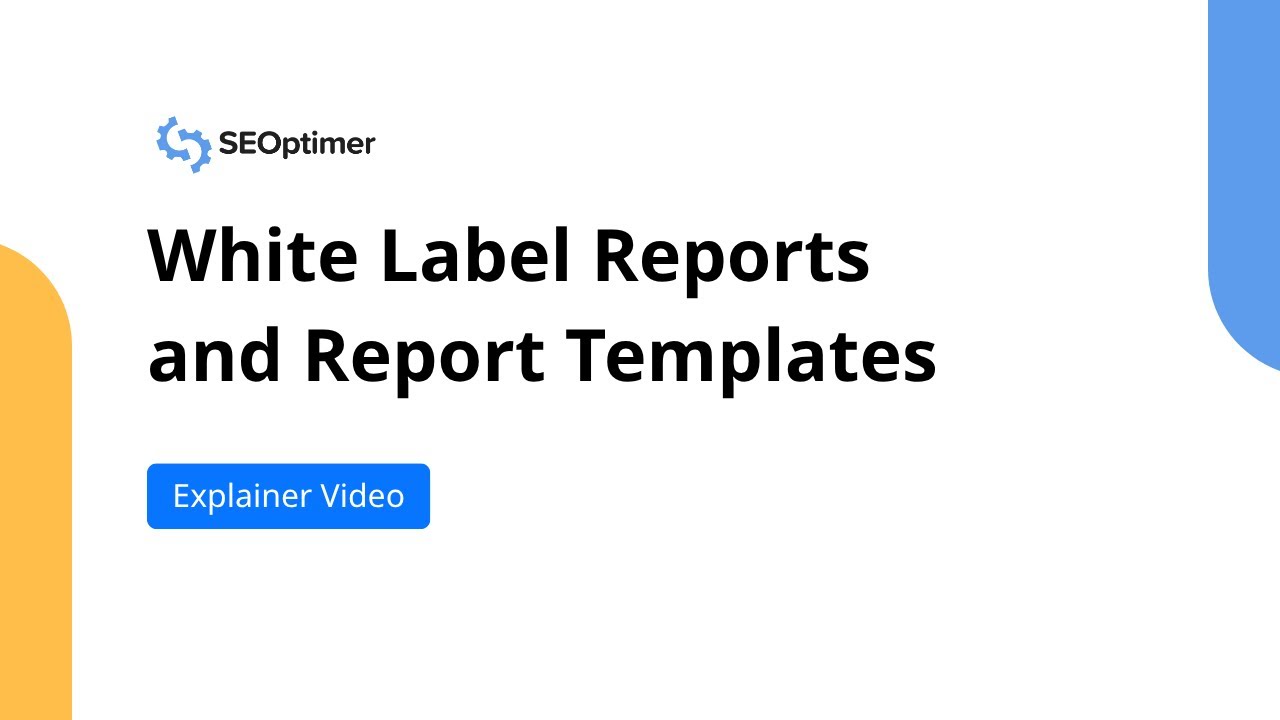
How to Create White Label Reports and Report Templates
Benefits of white label local SEO for your agency
Scalability and capacity expansion
Let’s talk about what it really means to scale your agency easily. With white label local SEO, growing your client base or rolling out new campaigns doesn’t require a hiring spree or checking your stress levels daily.
- Rapid service scaling without hiring
Handle more clients and launch campaigns 3.2x faster—just look at WebSpero Solutions, who managed over 1,000 clients without expanding their team. - Efficient management of workload spikes
Busy seasons or sudden project surges? Flexible agreements kept Galileo Tech Media’s partners calm, even as they onboarded 200+ franchise locations without needing extra hires. - Easy entry into new verticals or markets
Tap specialised partners to jump into new industries or markets. K9 Academy, for example, saw local organic traffic leap by 338% through white label support.
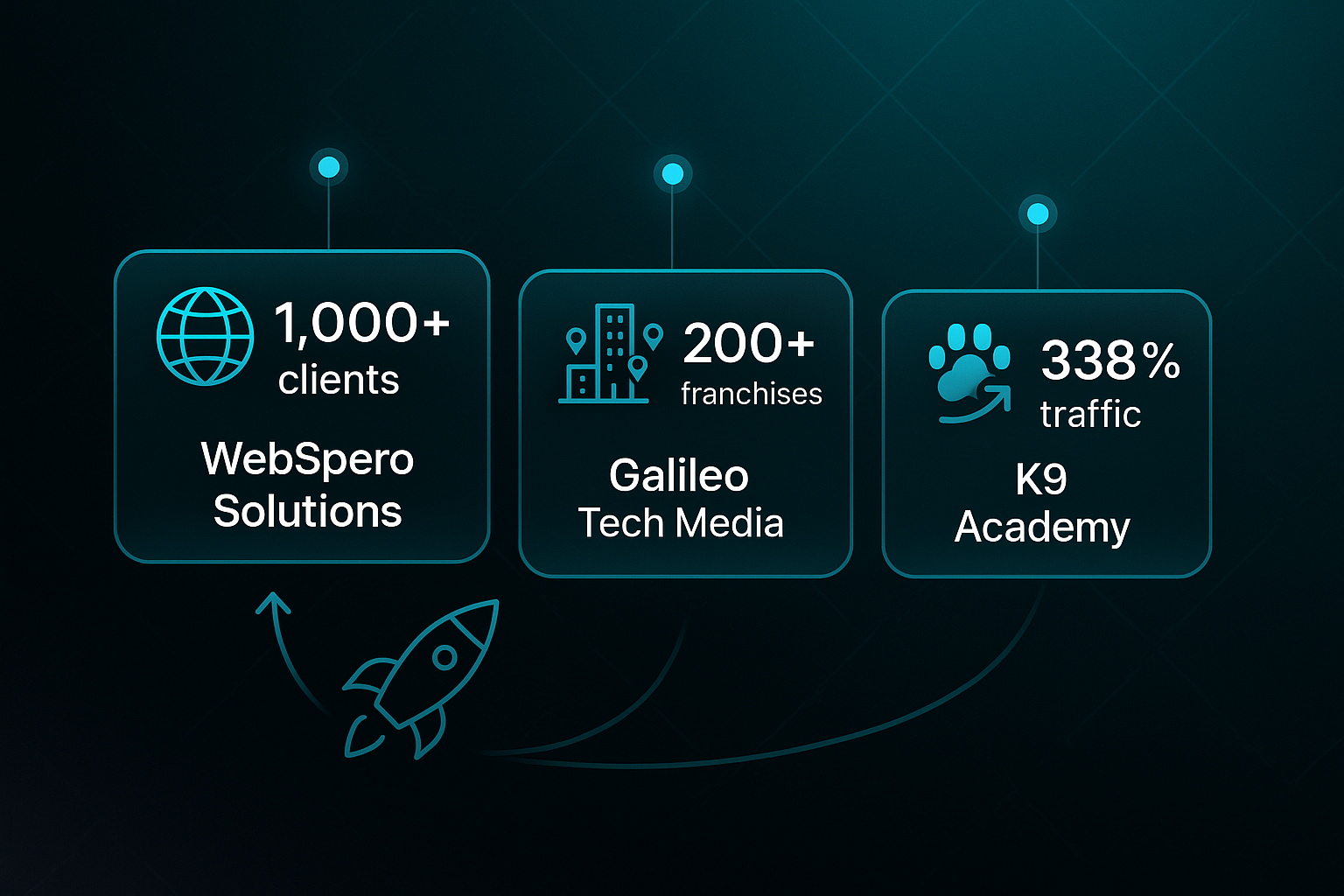
What’s the common thread? Instant access to expertise and capacity—right when you need it, minus the fixed costs and hiring headaches.
White label partnerships provide immediate access to scalable infrastructure, such as listing clients on over 70 directories, which significantly increases an agency's capacity without adding overhead.
Cost and expertise advantages
Worried about budgets or missing out on top-tier knowledge? White label makes both easier to manage.
- Lower fixed costs and reduced risk
Pay-as-you-go models can trim payroll and tech expenses by 30–50%, proven in Galileo Tech Media’s case studies, so scaling comes with less risk. - Access to advanced tools and expertise
Providers bring the very latest local SEO tech and talent. WebSpero’s work sparked a 339% increase in sessions for agency clients. - Budget reallocation opportunities
Saving on team expansion means more funding for client outreach, retention initiatives, or growth strategy—the things that build your bottom line.
Operational and brand control advantages
Here’s where you can actually regain focus and keep your agency brand shining.
- Consistent agency branding and seamless client experience
Every report, dashboard, and deliverable sports your brand—Galileo’s partners use this for seamless multi-location reporting, always front of mind with clients. - Internal focus on high-value activities
Your team can spend time on strategy, innovation, and market growth instead of local SEO’s day-to-day tasks. - Enhanced agility and competitiveness
More streamlined operations help agencies move quickly, win bigger jobs, and boost market standing—without sacrificing results or satisfaction.
White label local SEO lets you scale up, cut costs, and sharpen your agency’s competitive edge—all with confidence and control.
Key considerations when choosing a white label local SEO provider
Quality and transparency
When you bring someone into your agency’s workflow, quality control and clear communication should top your list. The work your white label partner delivers doesn’t just affect results; it shapes your agency’s reputation, drives loyalty, and gives you room to grow with confidence.
So, how can you spot a truly quality provider? Start by asking the right questions—then insist on seeing real proof of their standards in practice. Request anonymised sample reports and actual campaign audits up front. This gives you direct insight into their command of core local SEO tasks (think Google Business Profile management, citation accuracy, content creation, and structured data). More importantly, check if they offer generic answers or bespoke solutions. What you’re looking for is consistency, detailed formatting, and summaries that show both the challenges tackled and results achieved.
And let’s not skip the tricky bits. A partner willing to walk you through anonymised accounts of sorting out tough issues—like a suspended listing or a challenging negative review—shows you they can adapt. That’s the kind of backup you need when campaigns get complicated.
Customisation matters, too. Your branding needs to stand out on every report and dashboard. Choose partners who provide fully customisable reporting: your logo, colours, and signature style, right where clients see it. Executive summaries in your tone, custom visuals, and location-by-location breakdowns add polish and help your agency’s reputation shine.
Now, about transparency. This isn’t just a buzzword—especially for agencies with big, multi-location clients. The best providers offer live dashboards and workflow management tools that let you track every task, leave feedback, and spot deliverables as they develop. Whether it’s via Asana, Monday.com, or sophisticated in-house portals, make sure you always have full visibility—no hidden surprises.
Cut corners on quality and you may end up firefighting. One report with the wrong branding, an error, or missing data can dent client trust. Some agencies have had to scramble after a templated report accidentally revealed another firm’s confidential information—definitely not the kind of story you want to star in.
Here’s how you shield your reputation: always start with a pilot project. Put your prospective provider’s communication, attention to detail, reliability, and response to mistakes to the test. Set clear benchmarks—quick turnarounds, accuracy, and how they fix errors. A pilot shows not just what they can do, but how they handle feedback and bumps along the road.
A strong beginning lays the foundation for a real partnership—one that protects your brand and might even make it stronger in the long run.
How to implement white label local SEO in your agency: A step-by-step approach
Internal assessment and goal-setting
Kick things off by auditing your current SEO services, team capacity, and tech stack. Where are you thriving, and where are the cracks starting to show? Get really specific with your growth targets—maybe you want a 25% lift in client onboarding or to shave 40% off fulfilment delays.
Focus on service areas that clients constantly request, such as Google Business Profile management and local content creation. A solid assessment will highlight skills gaps and tech constraints that might block scalability. That makes it much easier to set clear goals, like quicker onboarding or reaching new market verticals.
Research, vetting, and pilot onboarding of providers
Once you know what you need, start researching providers with a genuine track record in manual and AI-driven local SEO services (think automated platforms like SEOSwarm). Use a checklist to screen for deliverable branding, sample reports, robust QA protocols, NDA protection, and speedy support contacts.
Ask for anonymised reports and error-handling documentation to get a feel for their standards. Then, run a pilot—target a 24–48 hour turnaround from onboarding to first deliverable. This is where you’ll really see how they communicate, manage fulfilment, and deliver on promises.
Workflow integration and client deliverable setup
After choosing your provider, link their systems with your project management platforms—maybe it’s Asana, Monday.com, Slack, or your own dashboard. Make asset collection as painless as possible with digital intake forms and online portals so data transfer becomes seamless.
Divide workflow roles smartly. Perhaps AI agents draft local content (like with SEOSwarm), while human experts review and polish everything. Build in preview and approval steps for every deliverable, so nothing goes to clients until you’re sure it’s agency-perfect.
Quality assurance and escalation
Quality has to be intentional. Design measurable QA checkpoints: validate schema, audit citations/NAP consistency, and run site speed tests. For any listing or citation slip-ups, set a 24-hour correction window. Make sure escalation contacts are in place, with clear feedback loops so urgent issues get sorted and everyone stays informed.
Ongoing optimisation and scaling
Set up live dashboards to track campaigns and get instant alerts when things shift. Hold regular reviews with your provider to fine-tune processes, tackle recurring challenges, and update your tactics.
As efficiency improves—thanks to automation and platforms like SEOSwarm—you'll be able to expand your white label portfolio, offer new local SEO services, onboard fresh clients, or step into new verticals. Always match your growth to the provider's delivery capacity for smooth scaling.

AI-Powered
SEO Content Strategy
See the AI platform that's replacing entire content teams
(with better results).

Provider/implementation checklists and frameworks
Formal checklists are invaluable for vetting providers—double-check branding options, QA standards, reporting features, and error protocols. Create frameworks for onboarding and deliverable review, spelling out approval steps, documentation needs, and who signs off.
Keep refining your workflow by referencing leading agency best practices, like automated client intake, quicker audit cycles, and dynamic reporting routines. That way, your agency’s operations stay efficient, competitive, and future-ready.
White label local SEO vs. in-house and traditional SEO outsourcing: Which is right for your agency?
Cost, quality, and control trade-offs
How do you choose the best route for local SEO delivery? The big three options—in-house, white label, or traditional outsourcing—each come with their own pros and pitfalls. Bringing SEO in-house means paying £40,000–£90,000 per year per specialist (plus recruitment, training, tools—the works).
White label local SEO? Expect £500–£2,000 per location per month, and agencies like ClickDo saw a 42% cost drop in 2024 and much faster onboarding—without adding to your payroll.
Traditional outsourcing sits between the two on price (think £1,500–£10,000 per month retainers), but isn’t tailored for local, multi-location growth. For agencies handling lots of location-driven work, white label provides flexibility and budget-friendliness.
With in-house, you get total quality control—and bottlenecks if your team’s small. Scaling with white label is smoother, as long as you monitor providers for reliability and consistent branding. But outsourcing? Several UK agencies in 2023 reported headaches—late or off-brand reports—after scaling up with third-party vendors.
Scalability and expertise comparisons
If rapid growth is your priority, white label local SEO is the fast lane. ClickSlice helped a solar installer expand from 12 to 30+ locations in just weeks—no long recruitment cycle.
In-house growth, by contrast, moves at the speed of hiring. Traditional outsourcing might not have the bandwidth or strict local expertise needed for map pack results. White label providers, though, bring specialist skills and up-to-date tools, plugging agency knowledge gaps fast. Traditional outsourcing generally offers less focus on local visibility—and more generic SEO.
Branding, client relationships, and workflow
Want tight control of your brand and how clients perceive you? In-house teams still lead the pack—you approve every detail. But white label SEO can get you nearly there: 78% of UK agencies in 2024 reported retaining full brand presentation with their white label partners.
Outsourcing to third-parties? Branding suffers if vendors contact clients or issue unbranded deliverables—one wrong report can damage hard-earned trust.
Choosing the right model
| Model | Cost Flexibility | Quality Control | Speed-to-Scale | Skill Access | Brand Experience |
|---|---|---|---|---|---|
| White Label Local SEO | High—flexible | Provider-dependent | Instant | Specialist, current | Strong—brand protected |
| In-House SEO | Low—fixed salary | Highest oversight | Slow | Trained internally | Strongest control |
| Traditional Outsourcing | Mid—retainer | Vendor variable | Moderate | General SEO | Weaker—brand risk |
If you want branded, scalable growth, white label is often the answer. For absolute control, nothing beats in-house; traditional outsourcing works if you just need to fill a one-off gap.
Leveraging technology and automation: The future of white label local SEO
Technology and automation are the driving force behind modern white label local SEO. As the appetite for scalable, affordable, and always-on service grows, agencies are making the switch to AI-powered tools and clever automation platforms. It’s all about working faster and smarter—without losing agency control or that personalised brand experience.
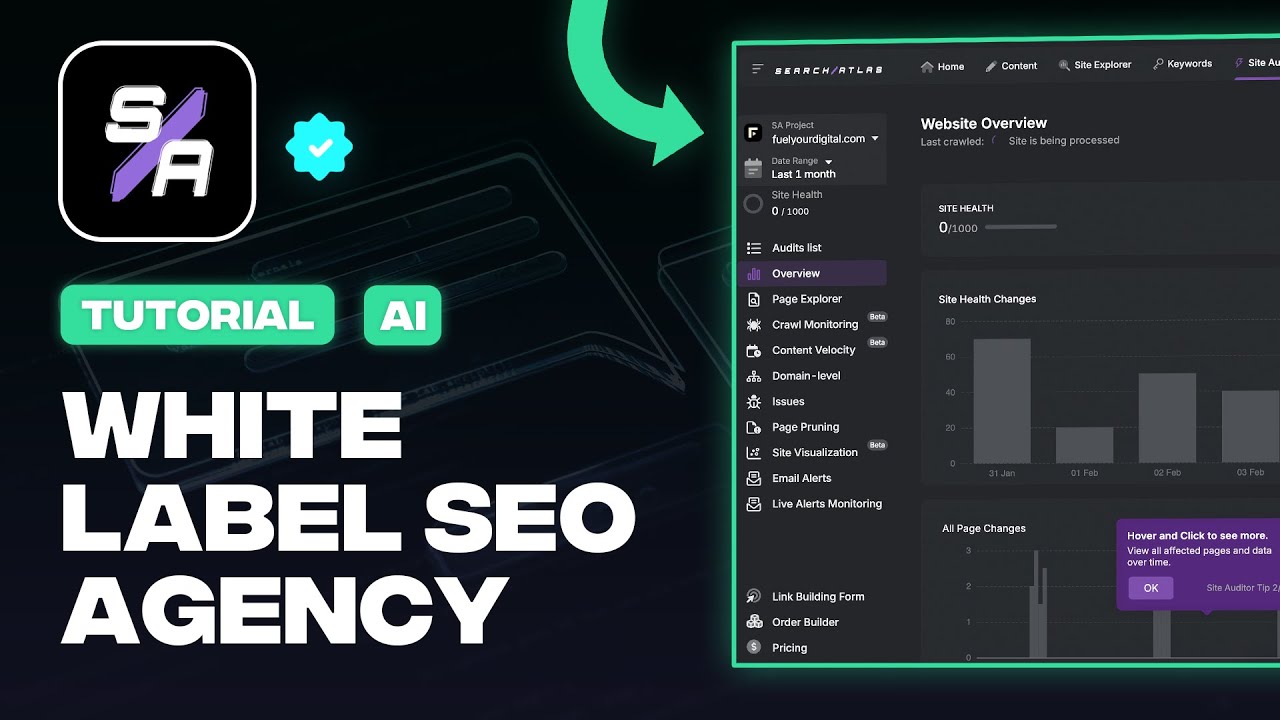
How to Start a White Label AI SEO Agency in 2025
AI-driven solutions: benefits and differentiators
Here’s where it gets interesting: AI has quietly transformed white label local SEO. Instead of wading through endless keyword research, citation audits, or painstaking blog writing, agencies now let AI handle the heavy lifting.
Tools like SEOSwarm empower agencies to automate deep research and content creation—all while reporting under the agency’s own branding.
It’s not just hype, either. Some agencies report campaign launch times down by 72%, while organic sessions have soared as much as 339%.
And because these AI agents can launch hundreds of local SEO campaigns at once, agencies can expand quickly—without the chaos or risk of dropping standards. But—and this is crucial—human expertise is still part of the process to guarantee quality.
Automation, integration, and instant deployment
Ever wished you could set up live, local content everywhere in minutes? Tools like blog-in-one-minute mean you actually can. A couple of lines of code and a content hub is instantly up and running—CMS-agnostic, sitting on speedy Cloudflare hosting.
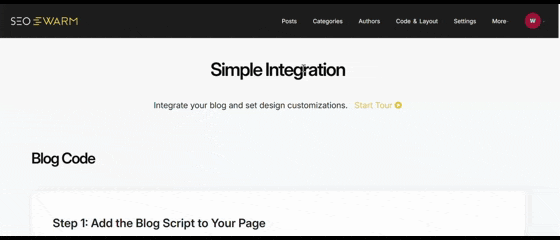
No up-front dev costs, no tangled integrations—just snag a subscription and ramp up. Automated linking, structured schema, and direct CRM or project management integration transform raw data into live, optimised content—at scale.
Blog-in-one-minute
Add a fully SEO-optimised blog to your website with just 2 lines of code.
Learn more
Human oversight and quality in AI-powered models
The weird part is, the more advanced the automation, the more valuable human input becomes. Most agencies now blend AI with strategist-led reviews and approvals. AI takes care of repetitive work, but professionals keep an eye on tone, context, and QA—making sure nothing generic or off-brand sneaks through.
Every deliverable gets a human sign-off, staged approvals, and structured feedback to make certain quality never slips.
Technology adoption strategies for agencies
Eyeing these tools for your agency? Appoint a technical lead to manage roll-out, vet platforms for robust API support, and lock in clean data handling. Real-time, machine-learning-powered audits and instant error checks are a must.
The best platforms provide dynamic dashboards and custom-branded reports. Focus on scalability, seamless workflow fit, and provider support. When all those pieces connect, your agency won’t just keep up—it’ll lead the local SEO charge.
Agency growth strategies empowered by white label local SEO
Service packaging, niche specialisation, and vertical expansion
How do agencies seem to launch slick industry-specific packages overnight? That’s the edge white label local SEO unlocks.
London’s ClickSlice rolled out tiered local SEO solutions for dental, legal, and hospitality sectors—complete with Google Business Profile optimisation and review management. The result? A 38% boost in average deal size and deals closed 22% faster.
US agency Woobound used AI-driven, multi-location packages and watched clients’ rankings jump 27% in 90 days. Manchester’s DentalBoost honed in on serving dental practices with white label support—seeing 54% more inbound leads and 41% better retention in just one year.
Leveraging these frameworks, agencies can break into new niches quickly and charge premium retainers—no need to start from scratch.
Operational efficiency and team focus
What about getting the groundwork done? Offloading technical SEO—from citation checks to website tweaks—can revolutionise agency workflows. Brighton’s Elevate Digital cut audit times from 10 days to 48 hours, doubled client count, and dropped fulfilment costs by 33% in six months.
OMR Digital in the US skipped hiring more SEO staff, saving $120,000 per year. GrowthHive redirected energy into strategy, pushing their Net Promoter Score up to 65. Ongoing reviews keep everyone on track and focused on what matters.
Client retention and margin improvement
The payoff? Agencies using fast, branded white label delivery saw 28% lower churn in just a year, supported by real-time dashboards.
LocalSpark’s monthly reviews boosted retention from 11 to 17 months. Gross margins climbed to 55–65% (compared to 35–45% in-house), while WebFox in Birmingham raised profit per local SEO client by 29%. Setting clear benchmarks and checking in regularly cements loyalty, margins, and ongoing success.
The key to maximizing profit with white-label SEO lies in leveraging a comprehensive platform that integrates fulfillment with client management tools like CRM, project management, and real-time analytics reporting.
Common mistakes to avoid in white label local SEO implementation
Quality, communication, and alignment pitfalls
White label local SEO projects can unravel quickly if you’re not watching quality or process. The most common mistake? Trading quality for a cheap or fast provider. That route brings duplicated content and search penalties—one agency watched 40% of its rankings vanish by rushing work through unchecked.
If you don’t use clear workflows or dashboards to track projects, things slip. Missed reviews mean late or off-target deliverables, and suddenly client trust starts dissolving.
Branding, data, and provider relationship pitfalls
Then there’s brand confusion and poor data management. Letting a provider’s logo slip onto a client report immediately reveals the outsourcing—and can create doubts about your agency’s value.
If your contract is vague or your data practices are weak, you might lose access to vital accounts or assets when the partnership ends.
- Wrong or missing branding
Provider branding on deliverables weakens your value in the client’s eyes. - Inadequate data security or contract terms
Poor safeguards or loose contracts put assets and relationships at risk.
Best practices for white label local SEO success
How do you stay on track? Nail onboarding with intake forms and set clear milestones so all parties are aligned. Regular review cycles mean every deliverable is double-checked before it reaches a client.
- Detailed onboarding and review cycles
Clarity and deadlines for all. - Routine quality audits
Catch problems before they reach clients. - Strict agency branding
Every deliverable feels distinctly yours. - Provider vetting and contract clarity
Set responsibilities and access upfront.
Stick with these habits, and your agency sidesteps trouble—building trust, not headaches.
Pricing, ROI, and profitability with white label local SEO
Comparing pricing models
Let’s talk numbers. White label local SEO usually gets packaged in three main ways: monthly retainers, per-deliverable or project fees, and subscriptions based on automation.
For most agencies, monthly retainers are the foundation. Wholesale costs land at $300–$800 (around £240–£640) per location each month. The resale bump is clear—agencies typically charge $800–$1,200 (about £640–£960) and, with those in competitive niches, even more.
One-off projects—like audits or Google Business Profile setups—sit between $400–$1,500 (£320–£1,200) per task. Automation and AI models, meanwhile, start at $250–$600 (around £200–£480), bringing scale and lower fulfilment costs as you grow.
Most agencies actually blend these pricing options—using a mix of flat fees, subscriptions, and bespoke packages. That way, clients get what they need without being boxed in.
ROI drivers and margin protection
So, how does the profit stack up? Payroll savings lead the way, followed by big drops in tool costs and the ability to manage more clients using the same resources.
Markups often sit at 30–100% above wholesale, so average gross profit margins reach 45–60%. Automation only sweetens this: in 2024, agencies reported 15–25% higher margins and ROI improving by 25–40% in just a year.
Bundled local SEO packages help stretch client relationships to 18–24 months and boost recurring revenue. But here’s the catch—if you cut costs too far and drop quality, margin and reputation take a direct hit.
That’s why a value-focused, flexible pricing strategy is key. It allows you to control costs, provide deeper services, and fuel sustained agency growth.
Industry trends and the evolving landscape of white label local SEO
AI and automation reshaping standards
Here’s where things have really started to accelerate—AI and automation are now at the heart of white label local SEO in 2024. Agencies are leveraging what you might call “invisible tech stacks”—think DashClicks, BrightLocal, SEMrush Agency Solutions—to take the grind out of repetitive work.
Day-to-day tasks like citation management, audits, and campaign reporting? They now run automatically in the background. And the impact is striking: agencies using automation have slashed campaign setup times by up to 60%.
The result? One team can suddenly manage hundreds of local business clients—no big hiring spree required. Take the US agency that expanded from 40 to 220 local clients in a year—boosting retention from 68% to 83% after integrating AI-powered dashboards and branded reporting.
It’s not just hype. These platforms allow truly data-driven campaign management at scale, with AI handling multi-location updates in real time.
Rising expectations for quality, transparency, and branding
But what about client expectations? Those have risen, too. Businesses now want results fast—live dashboards, instant updates, and clear, demonstrable ROI.
Real-time, branded dashboards let your clients track rankings, citation health, and reviews under your agency’s identity. Renewal rates on these platforms now hit 79%, beating traditional models.
And the upside? Agencies can reinvest saved time into strategy, analytics, and real human advice. Those blending automation with hands-on expertise are delivering both speed and long-term value.
Real-world scenarios: White label local SEO in action
White label local SEO doesn’t just reshape agency operations—it empowers agencies to expand capacity, evolve workflows, and rapidly launch industry-specific packages, all while building client trust.
What does this look like in practice? Let’s explore a few real-world examples.
Capacity expansion and workflow transformation
Take WebSpero Solutions and K9 Academy. By adopting a white label approach, they automated keyword research, citations, and content marketing for pet services.
The impact? Organic traffic surged 338.66% and sessions soared 339.96% in just six months. Automating audits and reporting allowed the agency team to focus on strategy and take on more clients—no extra hires needed.
Niche/vertical productisation and branding
White label partners help agencies roll out vertical-focused SEO packages at speed. Agencies like Galileo Tech Media and White Shark Media used ready-made templates and niche keywords, enabling cleaning and travel brands to onboard quickly with branded dashboards.
One cleaning service increased leads by 573.33% and calls by 490%, proving how these packages deliver swift, authoritative results.
Client outcomes and competitiveness
Agencies offer fully branded Google Profile optimisation and geo-targeted landing pages. The blend of automation, niche targeting, and robust reporting drives higher rankings, more leads, and, crucially, improved client retention.
Why White Label Local SEO Lets You Scale Smarter
Most agencies think scaling means hiring more staff or sacrificing quality, but white label local SEO flips that logic on its head. The real advantage comes from staying nimble—expanding your service offering, keeping your brand front and center, and letting specialists handle the heavy lifting behind the scenes.
If you want to move fast, start by auditing your current workflow and pinpointing where outside expertise could free up your team. My advice: run a pilot with a vetted provider, integrate branded reporting, and set up clear QA checkpoints. Use automation for repetitive tasks, but always keep human eyes on final deliverables.
The agencies that win aren’t just the ones who scale—they’re the ones who scale without losing control or credibility. In the end, your reputation grows not by doing everything yourself, but by delivering consistent, branded results your clients can trust.
- Wil



